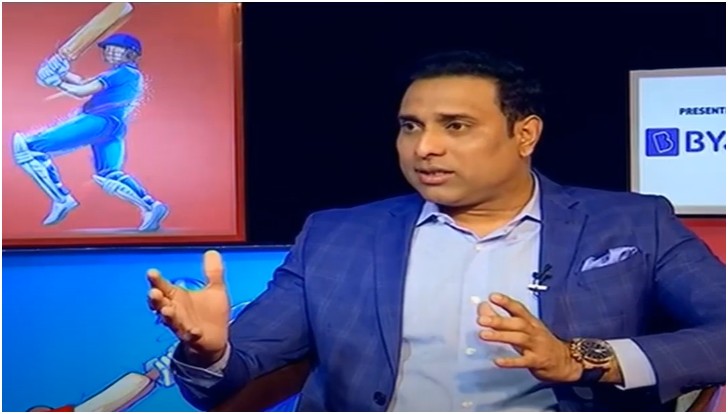The Day I Realized Cricket Could Feel Like a War Zone
I still remember sitting cross-legged in front of the TV, eyes glued to the screen as the 2008 Sydney Test between India and Australia unfolded.
When I heard VVS Laxman speaks Monkeygate scandal years later, it all came rushing back—the tension, the anger, and the heartbreak. That match wasn’t just another Test; it was a whirlwind of emotion, controversy, and resilience.
Laxman’s calm, almost philosophical voice as he revisited the Monkeygate episode reminded me why cricket is more than a sport in India—it’s a matter of spirit and pride. Hearing his version made me see that infamous match in a completely different light.
What Exactly Happened When VVS Laxman Speaks Monkeygate Scandal?
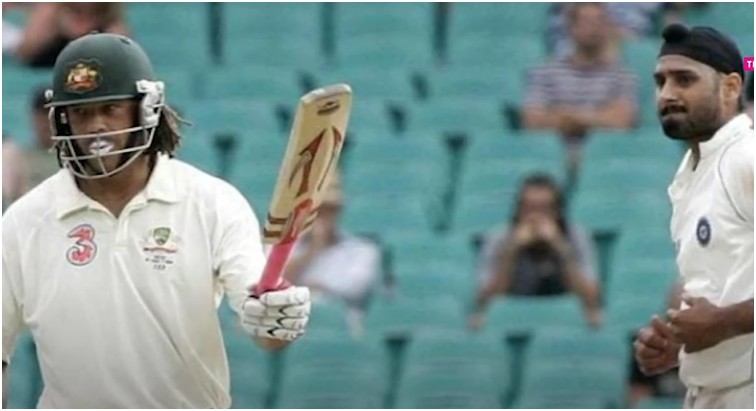
Image source – The Lallantop
When VVS Laxman speaks Monkeygate scandal, he doesn’t dramatize it—he humanizes it. He recalls that the incident was “blown out of proportion,” which, coming from someone as measured as Laxman, says a lot.
The controversy began when Harbhajan Singh was accused of making a racial slur—“Monkey”—toward Australian all-rounder Andrew Symonds. The moment escalated quickly, turning from a heated on-field exchange into an international diplomatic storm.
According to Laxman, the Indian team even considered boycotting the tour after that Sydney Test. There was frustration not only about the racial accusation but also about a string of poor umpiring calls that went against India.
For players who prided themselves on sportsmanship, it felt like an assault on both integrity and respect.
How Did Laxman Describe the Atmosphere Within the Team?
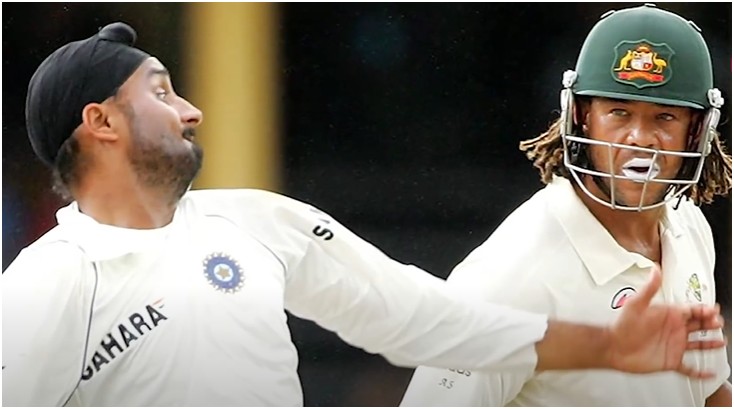
Laxman painted a vivid picture of the emotional state inside the dressing room. Imagine being in a foreign land, facing a crowd that’s against you, and then feeling betrayed by the officials. That’s where the Indian team found themselves.
The decision to continue or abandon the tour hung in the balance. The players were upset, the media was relentless, and the pressure from back home was enormous. Yet, it was Anil Kumble’s diplomatic leadership that held the team together.
Laxman described how Kumble calmly navigated the storm, choosing to rise above chaos rather than add to it.
Looking back, Laxman believes that the BCCI made the right call by continuing the series. It gave India a chance to respond not with outrage but with performance—and they did just that in Perth.
What Umpiring Decisions Still Haunt That Test?
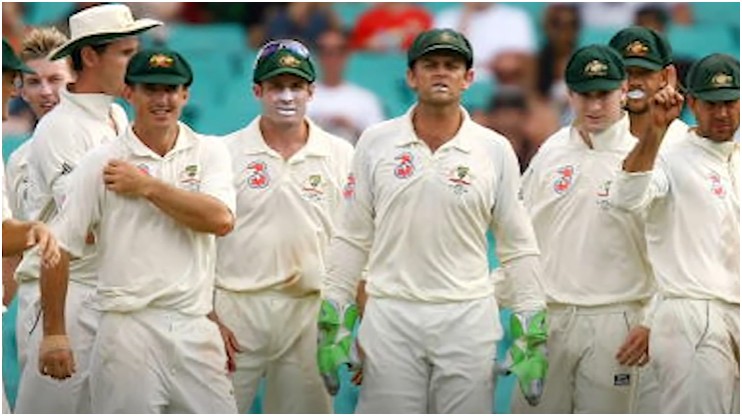
When VVS Laxman speaks Monkeygate scandal, he doesn’t just talk about the racism allegation; he highlights how poor umpiring decisions shaped the match’s outcome.
He recalls several key moments that left the team fuming:
- Andrew Symonds was given not out multiple times, even after clear edges.
- RP Singh’s delivery, which clearly brushed Symonds’ bat, was ruled not out.
- Sourav Ganguly and Rahul Dravid’s dismissals on the final day, according to Laxman, were “in very poor taste.”
It wasn’t just about mistakes—it felt like a pattern. To the Indian team, those calls robbed them of a possible win. They had played brilliantly, only to see their hard work buried under officiating errors and controversy.
Laxman admitted that the team felt deeply let down by the umpires. It’s one thing to lose fairly; it’s another to feel you were never given a fair chance.
How Did the Monkeygate Scandal Overshadow India’s Performance?
Despite the chaos, Laxman remains proud of how India played in that Sydney Test. He said the Monkeygate scandal overshadowed their strong performance, which was heartbreaking for players who had fought tooth and nail on the field.
India’s batting line-up—Laxman, Dravid, Tendulkar, Ganguly—had built what could have been a memorable draw or even a win. But instead of cricketing brilliance, the world focused on the scandal.
To Laxman, it felt like a story hijacked by drama. The team’s effort, their composure under pressure, and even their near-victory were forgotten. Years later, that still stings.
How Did India Bounce Back in Perth?
The next Test in Perth was redemption in motion. Laxman said that after the Sydney chaos, winning in Perth became personal. The team needed to prove—to themselves and to the world—that they were more than a headline scandal.
India came out fierce, focused, and fearless. Every run and wicket felt like a statement. That win wasn’t just about cricket; it was about reclaiming dignity. It showed that India could respond to injustice with excellence, not outrage.
For fans like me, that victory remains one of the most satisfying in Indian cricket history. It was the perfect reply to controversy: a silent roar on foreign soil.
Why Does VVS Laxman’s Perspective Still Matter Today?
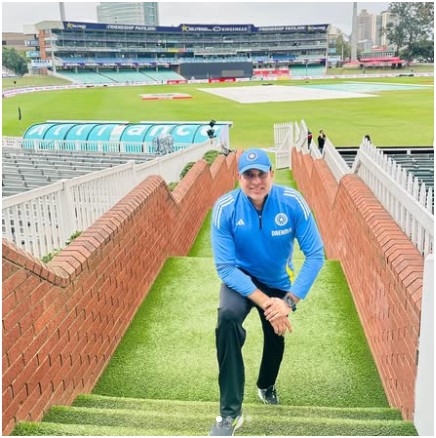
Image source- Instagram
When VVS Laxman speaks Monkeygate scandal, it’s not just nostalgia—it’s perspective. He’s not interested in reliving bitterness; he’s more focused on the lessons.
He reminds us that diplomacy can be more powerful than aggression, that leadership can turn tension into triumph. Laxman’s voice carries the calm of a man who’s seen it all—victory, loss, and unfairness—and still believes in the spirit of the game.
His reflections also highlight something modern cricket fans often forget: players are human. They bleed pride, they feel wronged, and they rise above it—not for fame, but for the love of cricket.
FAQ: What People Still Ask About VVS Laxman and the Monkeygate Scandal
Q1. What exactly was the Monkeygate scandal?
It was a major controversy during the 2008 Sydney Test when Harbhajan Singh was accused of racially abusing Andrew Symonds. The incident caused diplomatic tension between India and Australia and almost led to India boycotting the tour.
Q2. What did VVS Laxman say about the incident?
Laxman said it was “blown out of proportion.” He emphasized that the team felt let down by poor umpiring and media exaggeration, and credited Anil Kumble’s leadership for handling the crisis maturely.
Q3. Why was the 2008 Sydney Test so controversial?
Apart from the racial allegation, several umpiring errors went against India. Key players like Ganguly and Dravid were given out unfairly, while Symonds benefited from incorrect calls. The combination of these incidents made the match infamous.
Q4. How did India respond after the controversy?
The Indian team chose not to boycott the series and instead came back strong to win the next Test in Perth—a symbolic victory that restored their pride and silenced critics.
The Calm After the Storm
Whenever VVS Laxman speaks Monkeygate scandal, I can’t help but admire how he frames chaos with grace. He doesn’t seek sympathy or revenge; he seeks understanding.
His memories remind us that cricket is as much about character as it is about competition. What happened in Sydney wasn’t just about bad umpiring or heated words—it was about how a team stayed united when the world seemed against them.
If there’s one takeaway, it’s this: true champions don’t let controversy define them—they let their response do the talking.

